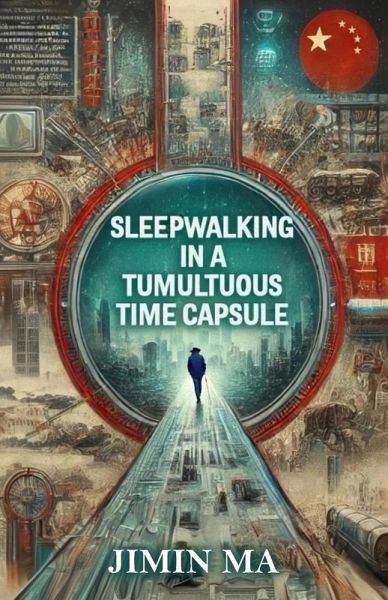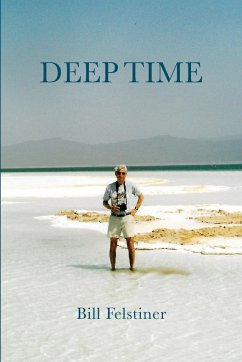
Sleepwalking in a Tumultuous Time Capsule
Versandkostenfrei!
Versandfertig in 1-2 Wochen
15,99 €
inkl. MwSt.

PAYBACK Punkte
8 °P sammeln!
This book explores the tension between progress and identity, blending the intimate with the global; its warm narrative and gentle craft allow real-life dramas to unfold and resonate much like a fictional tale.Through my journey, I invite readers to reflect on the collision of tradition and innovation, as well as the resilience of the human spirit amid chaos. Sleepwalking in a Tumultuous Time Capsule offers a perspective that is both timely and timeless, appealing to readers who appreciate works like Thomas Berger's Little Big Man or Daniel Wallace's Big Fish, both of which were later adapted ...
This book explores the tension between progress and identity, blending the intimate with the global; its warm narrative and gentle craft allow real-life dramas to unfold and resonate much like a fictional tale.Through my journey, I invite readers to reflect on the collision of tradition and innovation, as well as the resilience of the human spirit amid chaos. Sleepwalking in a Tumultuous Time Capsule offers a perspective that is both timely and timeless, appealing to readers who appreciate works like Thomas Berger's Little Big Man or Daniel Wallace's Big Fish, both of which were later adapted into films.While the world's great powers of the past experienced periods of prominence followed by long declines, none have managed to reclaim a dominant global status after a precipitous fall, and with the speed and scope demonstrated by modern China, her resurgence defies historical precedent. Once the supremacy of the great powers faded, they were either absorbed into other systems (as with the Romans and Ottomans) or reduced to regional powers (as with the British and French). These declines often became permanent, with no significant resurgence to their former glory, particularly in the era of global industrialization.Another transformation of our time capsule lies in the realm of science and innovation, approaching what feels like its final chapter. Metaphorically, it's like a punctuation period (.) at the end of humanity's life "sentence."The march of human progress began in earnest with the First Industrial Revolution in the late 18th century, transitioning from manual labor to mechanized production powered by steam. The Second Industrial Revolution10, in the late 19th century, introduced electricity, chemical processes, and combustion engines, laying the groundwork for modern telecommunications, industrialization, and material sciences. Each stage is built upon the last, propelling us into the Digital Revolution11.The advent of computers, the internet, and artificial intelligence has now brought us to a critical juncture-one where technology is likely to surpass human control. The horizon is filled with quantum computing, biotechnology, and gene editing, pushing us to redefine what it means to be human.












